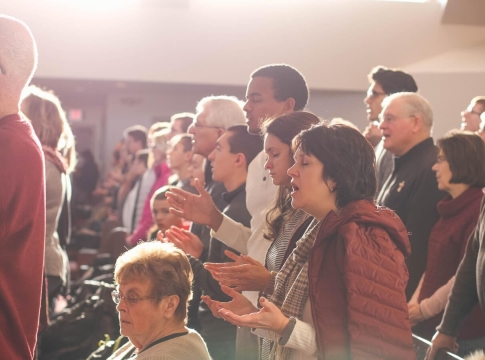
No, denominations are not approved by God. Jesus prayed “Holy Father, keep them in Your name, that they may be one, even as We are one” the night before He was crucified (John 17:11). God wants His church to be together.
The word ‘church’
Three definitions of “church” can be found in the New Testament. It is first utilized by the global church. Ephesians 5:23, which states that “Christ is the head of the church, His body,” is one illustration of this. Second, it is applied to a single city’s church, as in Acts 11:22, where it says, “The report of this came to the ears of the church Jerusalem.” Thirdly, home churches make use of it. Romans 16:5 says, “Greet also the church in their house.” As an illustration.It is clear that this house church was a part of Rome’s wider church.
One worldwide church
Therefore, God sees one global church. Every locality—village, town, or city—has a single church. There could be multiple gathering places at this one church.
This remains a spiritual veracity. Sadly, that is no longer true organizationally. [Many distinct denominations] are present. There is no organizational cohesion among those who identify as the one genuine church of God, even though they are a small number.
Sin is the reason for denominations
This is the result of sin. Because of sin, the church in the Middle Ages was not sharing the good news of God’s grace, which is why the Protestant Reformation was necessary. Sin is the cause of the Protestant movement’s numerous denominational splits due to disagreements that had nothing to do with the core message of the gospel. Sadly, as church splits gained acceptance, individual conflicts and aspirations also sometimes served as justification for founding new denominations.
The most ironic method of all to found a new denomination is to just begin meeting as believers, claiming to be the one real church or to not recognize any churches inside denominations. Throughout church history, this has been done a lot, and the end consequence has always been the emergence of new denominations.
Apostle’s creed
What are our options in such a circumstance? Even though at this point we are only able to perceive a spiritual unity rather than an organizational one, we continue to affirm with the Apostle’s Creed that we believe in “the holy catholic (that is, “universal”) church.” Even if they attend churches belonging to different denominations, we nevertheless acknowledge them as brothers and sisters in the Lord.
We are also obedient to the local church that the Lord has placed us in because of His vision of unity for His church. We acknowledge that diversity exists [in the body of Christ] and that this is a feature of God’s creation. It is not our job to find a group of individuals that are exactly like ourselves.
Simultaneously, since human sinful actions have caused the church, Christ’s body, to be broken throughout church history, [we are alert] to the warning signs of danger that have been mentioned above: a false gospel; sectarianism that seeks to impose uniformity instead of spiritual unity; and churches founded on personal ambition, where leaders are not answerable to the larger body of Christ. We may need to relocate to a church that is a more authentic representation of Christ’s body if we find ourselves in any of these circumstances.
Christ’s church
Recall that this is the church of Christ. It is not a volunteer organization that we are free to form whenever we like. Thus, let us pray for understanding of the gospel. Let us pray for all of God’s children to be united spiritually. Let us also pray for organizational unity, which has historically been far too lightly overlooked by Protestant churches. More accountability amongst members of the same community would promote unity and help churches stay biblical. It would also assist us in recognizing diversity’s unifying power. Above all, it would fulfill Christ’s request “that they be one, even as We are one.”





